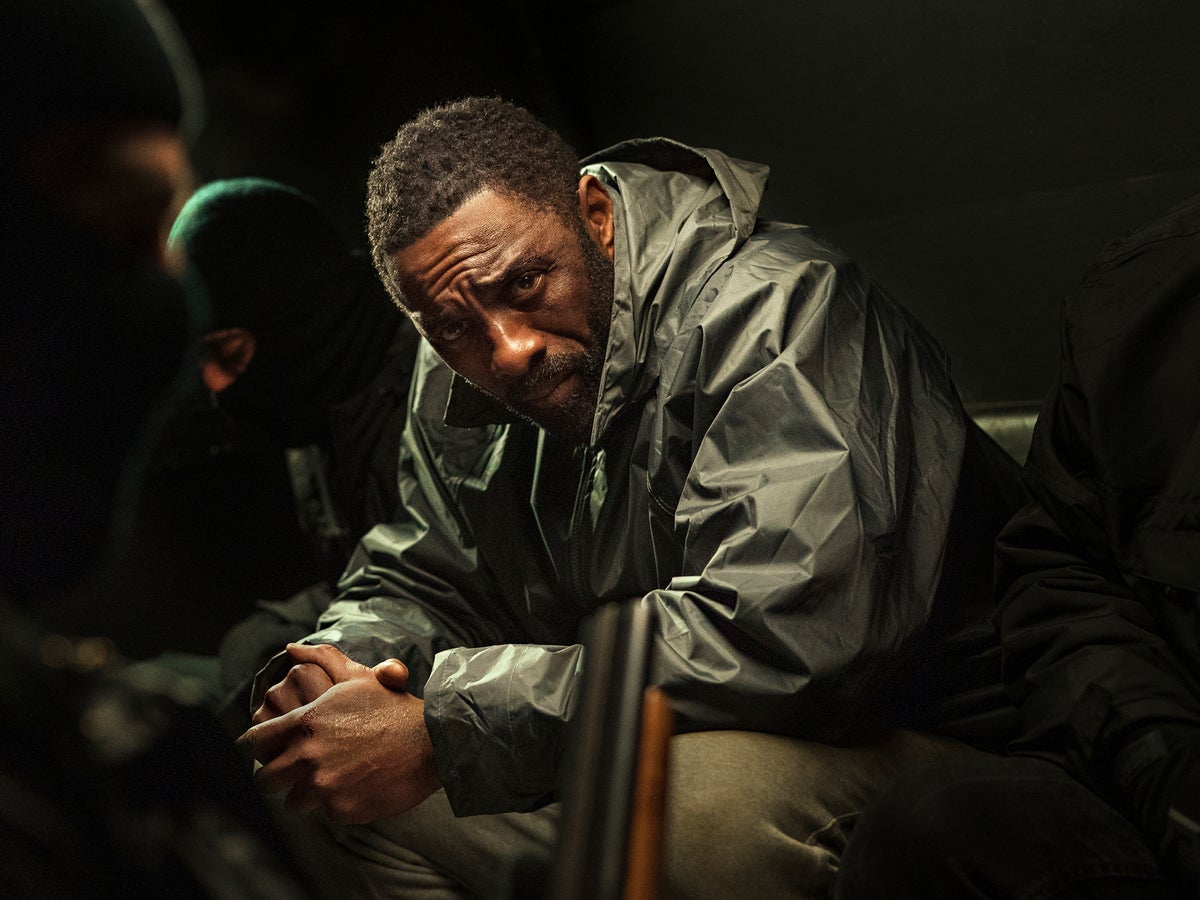
Luther, the BBC crime drama starring Idris Elba as a rule-adverse detective, was swiftly overtaken by cinematic ambition. What began as a relatively humble cop series set in a crime-ridden London became increasingly more absurd as it went on. By its fifth series, Luther was dealing with a killer in a clown mask shooting people full of nails. Luther: The Fallen Sun, a feature-length revival by Netflix, feels like an all-too-logical extension. The budget’s been upped considerably. Hollywood’s own Andy Serkis and Cynthia Erivo have been air-lifted in for support. And it’s fun, in the patently ridiculous way these sorts of zhuzhed-up thrillers tend to be.
The Fallen Sun isn’t much of a Bond audition for Elba – who’s had to shoot down rumours he’s the next 007 yet again this week – but it’s a solid argument for making him the next Batman. Here’s a neo-noir London soaked in perpetual rain, with a Soho far sleazier than in real life. There’s no sign of all the media professionals popping out for a quick Joe & The Juice. For director Jamie Payne, who was behind several episodes of the series, this is cinematic with a capital “c”. It’s the sort of stuff no one would have dreamed of for Luther back when it first aired in 2010.
While the original show’s central antagonist, Ruth Wilson’s murderous Alice Morgan, was arguably Luther’s Joker, here we get the distinctly Riddler-esque David Robey (Serkis). He’s a malevolent tech genius with a Siegfried and Roy mop of blonde hair, who murders in a way that would probably make the killer from Se7en proud. He surveys his crime scenes by peering in through windows wearing a smiling digital mask. Oh, and he likes to innocuously sing along to the Supremes in his car, because that’s the sort of thing that villains do.
Robey’s motivations revolve vaguely around the concept of shame. He uses an army of hackers to spy on people through their webcams and Alexas, then digs up their dirtiest secrets before blackmailing them into compliance. He’s mad about a perceived hypocrisy that allows cruelty and violence to dominate some spaces, but not others. You’d think Luther’s creator, Neil Cross – who also scripts the film – would circle this story back around to the question of Luther’s own brusque, vigilante approach to police work. Is there really energy left to be rooting for coppers who view themselves as judge, jury, and executioner? But to really answer that question might mean the end of Luther for good, so The Fallen Sun awkwardly dodges the implications of its own premise.
Still, it all feels so much like a comic book that we never really have to question Luther’s place in our world if we don’t want to. The chief draw here is – as ever – Elba. He’s always excelled at playing men who’ve lost everything and are irritated to discover they’re still expected to carry on as before. The real trick has been to make us like and root for even the most crotchety among them. Series five ended with Luther’s arrest for his various law-breaking tactics. The film, as expected, then, involves a dramatic prison breakout. Elba punches and kicks his way through waves of fellow prisoners with the weariness of someone swatting away flies. Dermot Crowley’s returning DSU Martin Schenk and Erivo’s counterintelligence operative Odette Raine provide the necessary counterbalance as sensible sorts with a begrudging respect for Luther’s determination.
There’s no real revelation at the heart of The Fallen Sun – either for its lead character or for everyone watching. This is exactly what you’d expect from Luther on the big screen, right down to the climactic trip to a mountain locale in which our hero trudges through arctic conditions in nothing but a shirt, tie, and herringbone wool overcoat. I wouldn’t expect any less of him.
Dir: Jamie Payne. Starring: Idris Elba, Cynthia Erivo, Andy Serkis, Dermot Crowley, Jess Liaudin. 15, 123 minutes.
‘Luther: The Fallen Sun’ is in select cinemas from 24 February, and will stream on Netflix from 10 March







